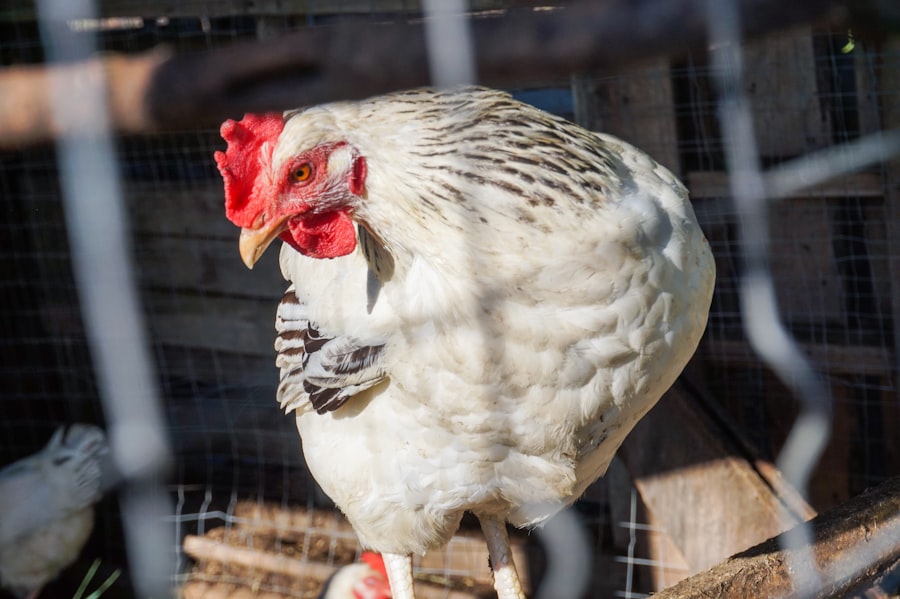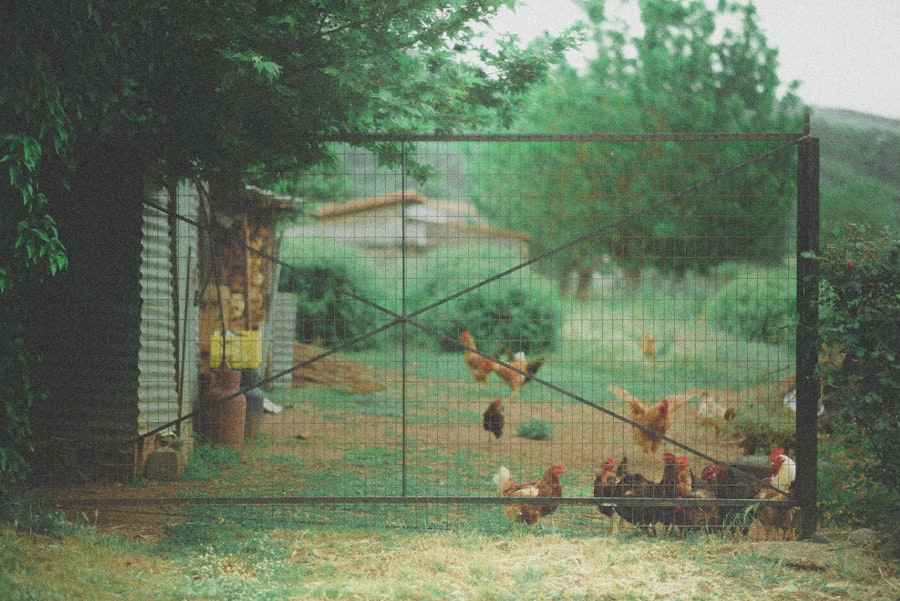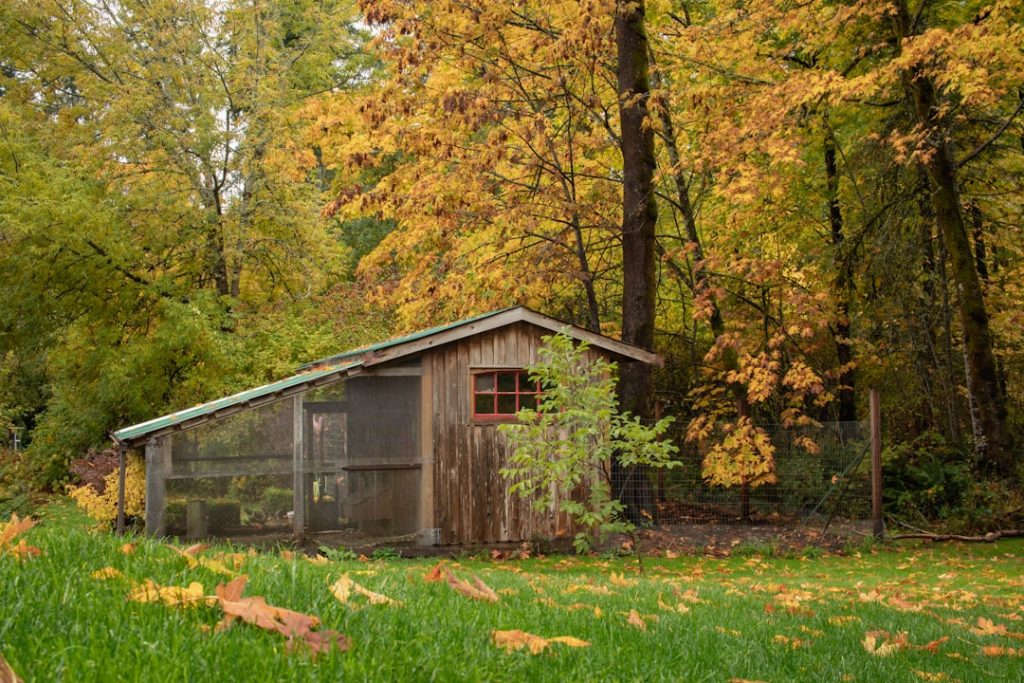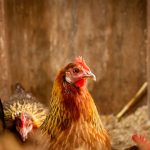Chickens, like all animals, have specific needs that must be met in order for them to thrive, especially during the winter months. Understanding these needs is crucial for ensuring the health and well-being of your flock. In winter, chickens require adequate shelter from the cold, access to fresh water, a balanced diet, protection from frostbite and other winter hazards, and a clean and dry coop environment.
Failing to meet these needs can result in stress, illness, and even death for your chickens. Therefore, it is important to be aware of the specific requirements of chickens in winter and take the necessary steps to meet them. Chickens are sensitive to cold temperatures and can suffer from hypothermia if they are not provided with adequate shelter.
It is important to provide a warm and draft-free coop for your chickens to roost in during the winter months. Additionally, chickens need access to fresh water at all times, as dehydration can occur quickly in cold temperatures. Their diet should also be adjusted to provide them with the necessary nutrients to stay healthy and maintain their body temperature.
Furthermore, chickens are susceptible to frostbite on their combs, wattles, and feet, so it is important to protect them from these winter hazards. Finally, maintaining a clean and dry coop environment is essential for preventing illness and disease among your flock. By understanding and meeting the specific needs of chickens in winter, you can ensure that your flock remains healthy and happy throughout the colder months.
Table of Contents
- 1 Providing adequate shelter for chickens
- 2 Ensuring access to fresh water in cold temperatures
- 3 Adjusting the chickens’ diet for the winter months
- 4 Protecting chickens from frostbite and other winter hazards
- 5 Maintaining a clean and dry coop environment
- 6 Monitoring the health and behavior of chickens during the winter
- 7 FAQs
- 7.1 What are some important considerations for keeping chickens outside in the winter?
- 7.2 What type of shelter is best for chickens in the winter?
- 7.3 How can I ensure that my chickens have access to fresh water in the winter?
- 7.4 What should I feed my chickens in the winter to help them stay warm?
- 7.5 What are some signs that my chickens are too cold in the winter?
Key Takeaways
- Chickens need extra warmth and protection in winter due to their susceptibility to cold temperatures
- Adequate shelter should be provided to protect chickens from harsh weather conditions
- Fresh water should be made available to chickens at all times, and measures should be taken to prevent it from freezing
- The diet of chickens should be adjusted to provide them with the necessary nutrients and energy to stay warm in winter
- Measures should be taken to protect chickens from frostbite and other winter hazards, such as using petroleum jelly on combs and wattles
Providing adequate shelter for chickens
Insulation and Ventilation
A well-insulated coop with proper ventilation is essential for keeping chickens warm and dry. The coop should be free from drafts and leaks, as these can lead to hypothermia and illness in chickens.
Comfortable Roosting and Bedding
Additionally, providing enough space for all the chickens to roost comfortably is important for their well-being. It is also beneficial to provide extra bedding such as straw or wood shavings to help insulate the coop and keep it dry.
Outdoor Shelter and Protection
In addition to a well-insulated coop, it is important to provide outdoor shelter for your chickens as well. A covered run or outdoor area can give chickens the opportunity to stretch their legs and get some fresh air without being exposed to the elements. This outdoor shelter should be protected from wind and snow, and it should also provide some protection from predators. By providing adequate shelter for your chickens, you can help them stay warm, dry, and healthy throughout the winter months.
Ensuring access to fresh water in cold temperatures

Access to fresh water is essential for chickens year-round, but it becomes even more crucial during the winter months when temperatures drop. Chickens can become dehydrated quickly in cold weather, so it is important to ensure that they have access to clean, unfrozen water at all times. There are several methods for preventing water from freezing in cold temperatures, such as using heated waterers or adding a small amount of apple cider vinegar to the water to lower its freezing point.
It is also important to regularly check on the water supply throughout the day to make sure it has not frozen over. If the water does freeze, it should be replaced with fresh, unfrozen water immediately. Dehydration can lead to serious health issues for chickens, so it is crucial to prioritize their access to water during the winter months.
By taking the necessary steps to ensure that your chickens have access to fresh water at all times, you can help them stay healthy and hydrated throughout the colder months.
Adjusting the chickens’ diet for the winter months
A balanced diet is essential for the health and well-being of chickens year-round, but it becomes especially important during the winter months when they need extra nutrients to stay warm and healthy. In colder temperatures, chickens require more energy to maintain their body temperature, so their diet should be adjusted accordingly. Providing a high-quality layer feed with added protein can help chickens maintain their energy levels and stay warm during the winter months.
In addition to a balanced layer feed, it is beneficial to provide supplemental treats such as scratch grains, mealworms, or black oil sunflower seeds to give chickens an extra boost of energy. These treats can also help prevent boredom and provide mental stimulation for chickens during the winter when they may be spending more time indoors. It is important to monitor your chickens’ body condition and adjust their diet as needed to ensure that they are getting the nutrients they need to stay healthy throughout the winter months.
Protecting chickens from frostbite and other winter hazards
Chickens are susceptible to frostbite on their combs, wattles, and feet in cold temperatures, so it is important to take steps to protect them from this winter hazard. Providing adequate shelter with proper ventilation can help prevent frostbite by keeping the coop dry and free from drafts. Additionally, applying a thin layer of petroleum jelly to your chickens’ combs and wattles can help protect them from frostbite by creating a barrier against the cold.
It is also important to keep an eye on your chickens’ feet and make sure they are not becoming frostbitten. Providing a dry surface for your chickens to walk on can help prevent frostbite on their feet. If you notice any signs of frostbite on your chickens, such as discoloration or swelling, it is important to take action immediately by bringing them indoors and providing warmth and gentle care.
By taking proactive measures to protect your chickens from frostbite and other winter hazards, you can help ensure their health and well-being throughout the colder months.
Maintaining a clean and dry coop environment

Preventing Moisture-Borne Illnesses
Moisture in the coop can lead to mold, mildew, and bacterial growth, which can cause respiratory issues and other health problems for chickens. Regular cleaning of the coop bedding and replacing it with fresh bedding is essential to keep the environment dry and sanitary.
The Importance of Ventilation
Proper ventilation is vital for maintaining a clean and dry coop environment. Good ventilation helps remove moisture from the air and prevent condensation from building up in the coop. This can be achieved by providing windows or vents in the coop that can be opened or closed as needed to regulate airflow.
A Healthy Flock Starts with a Clean Coop
By maintaining a clean and dry coop environment, you can help prevent illness and disease among your flock and ensure that they stay healthy throughout the winter months.
Monitoring the health and behavior of chickens during the winter
Monitoring the health and behavior of your chickens is crucial during the winter months when they are more susceptible to illness and stress. It is important to keep an eye on your flock for any signs of illness or injury, such as lethargy, decreased appetite, or abnormal behavior. If you notice any concerning symptoms in your chickens, it is important to take action immediately by isolating sick birds, providing warmth and comfort, and seeking veterinary care if necessary.
In addition to monitoring their physical health, it is also important to pay attention to your chickens’ behavior during the winter months. Chickens may exhibit signs of stress or boredom when they are cooped up indoors for long periods of time, so it is important to provide mental stimulation and enrichment activities to keep them happy and engaged. This can include providing treats, hanging up toys or mirrors in the coop, or allowing them time outside in a protected run when weather permits.
By monitoring the health and behavior of your chickens throughout the winter months, you can ensure that they stay healthy and happy despite the challenges of colder temperatures.
If you’re looking for tips on how to keep chickens outside in the winter, you might also be interested in learning about the importance of the size of your chicken coop door. Check out this article for helpful information on creating the right environment for your feathered friends.
FAQs
What are some important considerations for keeping chickens outside in the winter?
Some important considerations for keeping chickens outside in the winter include providing adequate shelter, ensuring access to fresh water that doesn’t freeze, and providing a balanced diet to help them stay warm.
What type of shelter is best for chickens in the winter?
A well-ventilated, draft-free coop with good insulation is best for chickens in the winter. It should also have a dry, clean bedding to keep the chickens warm and comfortable.
How can I ensure that my chickens have access to fresh water in the winter?
To ensure that your chickens have access to fresh water in the winter, you can use heated waterers or manually check and replace their water multiple times a day to prevent it from freezing.
What should I feed my chickens in the winter to help them stay warm?
In the winter, it’s important to provide your chickens with a balanced diet that includes a higher percentage of grains and protein to help them stay warm. You can also offer warm, cooked foods to help increase their body temperature.
What are some signs that my chickens are too cold in the winter?
Some signs that your chickens are too cold in the winter include huddling together for warmth, decreased egg production, and shivering. It’s important to monitor your chickens closely and make adjustments to their environment as needed.
Meet Walter, the feathered-friend fanatic of Florida! Nestled in the sunshine state, Walter struts through life with his feathered companions, clucking his way to happiness. With a coop that’s fancier than a five-star hotel, he’s the Don Juan of the chicken world. When he’s not teaching his hens to do the cha-cha, you’ll find him in a heated debate with his prized rooster, Sir Clucks-a-Lot. Walter’s poultry passion is no yolk; he’s the sunny-side-up guy you never knew you needed in your flock of friends!







